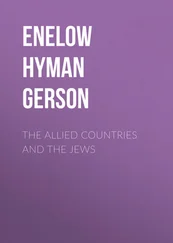Hilaire Belloc
e-artnow, 2021
Contact: info@e-artnow.org
EAN: 4064066383510
Preface
Chapter I. The Thesis of This Book
Chapter II. The Denial of the Problem
Chapter III. The Present Phase of the Problem
Chapter IV. The General Cause of Friction
Chapter V. The Special Causes of Friction
Chapter VI. The Cause of Friction Upon Our Side
Chapter VII. The Anti-semite
Chapter VIII. Bolshevism
Chapter IX. The Position in the World as a Whole
Chapter X. The Present Relation Between the English State and the Jews
Chapter XI. Zionism
Chapter XII. Our Duty
Chapter XIII. Their Duty
Chapter XIV. Various Theories
Chapter XV. Habit or Law?
Table of Contents
The object of this book is more modest, I fear, than that of much which has appeared upon that vital political matter, the relation between the Jews and the nations around them.
It does not propose any detailed, still less, any positive legal solution to what has become a pressing problem, nor does it pretend to any complete solution of it. It is no more than a suggestion that any attempt to solve this problem ought to follow certain general lines which are essentially different from those attempted in Western Europe during the time immediately preceding our own. I suggest that, if the present generation in both parties to the discussion, the Jews and ourselves, will drop convention and make a principle of discussing the problem in terms of reality, we shall automatically approach a right solution.
We have but to tell the truth in the place of the falsehoods of the last generation. Therefore, of the three principles upon which this essay reposes, the principle that concealment must come to an end seems to me more important than the principle of mutual recognition, or even the principle of mutual respect. For it may well be that my judgment is at fault in the matter of Jewish national consciousness; it may well be that I exaggerate it, and it is certain that one party to a debate cannot be possessed of the full knowledge required for its settlement; the other side must be heard. But neither my judgment nor the judgment of any man can be at fault on the value of truth and the ultimate evil consequences of trying to build upon a lie.
The English reader (less, I think, the American) will often find in my sentences a note that will seem to him fantastic. The quarrel is already acute here in London, but it has not here approached the limits which it has reached long ago elsewhere; and a man accustomed to the quieter air in which all public affairs have, until recently, been debated in this country, may smile at what will seem to him odd and exaggerated fears. To this I would reply that the book has been written not only in the light of English, but of a general, experience. I will bargain that were it put into the hands of a jury chosen from the various nationalities of Europe and the United States it would be found too moderate in its estimate of the peril it postulates. I would further ask the reader, who may not have appreciated how rapidly the peril approaches, to consider the distance traversed in the last few years. It is not very long since a mere discussion of the Jewish question in England was impossible. It is but a few years since the mere admission of it appeared abnormal. The truth is that this question is not one which we open or close at will in any European nation. It is imposed successively upon one nation after another by the force of things. It is this force of things, this necessity for national well-being, and for the warding off of disorder, which has thrust the Jewish question to-day upon a society still reluctant to consider it and still hoping it may return to its old neglect. It cannot so return.
I will conclude by asking my Jewish, as well as my non-Jewish, readers to observe that I have left out every personal allusion and every element of mere recrimination. I have carefully avoided the mention of particular examples in public life of the friction between the Jews and ourselves and even examples drawn from past history. With these I could often have strengthened my argument, and I would certainly have made my book a great deal more readable. I have left out everything of the kind because, though one can always rouse interest in this way, it excites enmity between the opposing parties. Since my object is to reduce that enmity, which has already become dangerous, I should be insincere indeed if from mere purpose of enlivening this essay I had stooped to exasperate feeling.
I could have made the book far stronger as a piece of polemic and indefinitely more amusing as a piece of record, but I have not written it as a piece of polemic or as a piece of record. I have written it as an attempt at justice.
CHAPTER I
THE THESIS OF THIS BOOK
Table of Contents
It is the thesis of this book that the continued presence of the Jewish nation intermixed with other nations alien to it presents a permanent problem of the gravest character: that the wholly different culture, tradition, race and religion of Europe make Europe a permanent antagonist to Israel, and that the recent and rapid intensification of that antagonism gives to the discovery of a solution immediate and highly practical importance.
For if the quarrel is allowed to rise unchecked and to proceed unappeased, we shall come, unexpectedly and soon, upon one of these tragedies which have marked for centuries the relations between this peculiar nation and ourselves.
The Jewish problem is one to which no true parallel can be found, for the historical and social phenomenon which has produced it is unique. It is a problem which cannot be shirked, as the last generation both of Jews and of their hosts attempted to shirk it. It is a problem which cannot be avoided, nor even lessened (as can some social problems), by an healing effect of time: for it is increasing before our eyes. It must be met and dealt with openly and now.
That problem is the problem of reducing or accommodating the strain produced by the presence of an alien body within any organism. The alien body sets up strains, or, to change the metaphor, produces a friction, which is evil both to itself and to the organism which it inhabits. The problem is, how to relax those strains for good and to set things permanently at their ease again.
There are two ways to such a desirable end.
The first is by the elimination of what is alien. The second is by its segregation. There is no other way.
The elimination of an alien body may take three forms. It may take a frankly hostile form—elimination by destruction. It may take a form, also hostile but less hostile—elimination by expulsion. It may take a third form, an amicable one (and that far the most commonly found in the natural process of physical nature and of society)—elimination by absorption; the alien body becomes an indistinguishable part of the organism in which it was originally a source of disturbance and is lost in it. These three ways sum up the first method, the method of elimination.
The second method, if elimination shall prove impossible or undesirable, is that of segregation; and this again may be of two kinds—hostile and amicable. We may segregate the alien element without regard to its own ends or desires: the segregation of it being upon a plan framed solely from the point of view of the organism invaded, and the reduction of the strain or friction it creates effected by the mere cutting of it off from all avenues through which it can affect its host.
But we may also segregate the alien irritant by an action which takes full account of the thing segregated as well as of the organism segregating it, and considers the good of both parties. In this second and amicable policy the word segregation (which has a bad connotation) may be replaced by the word recognition .
Читать дальше












